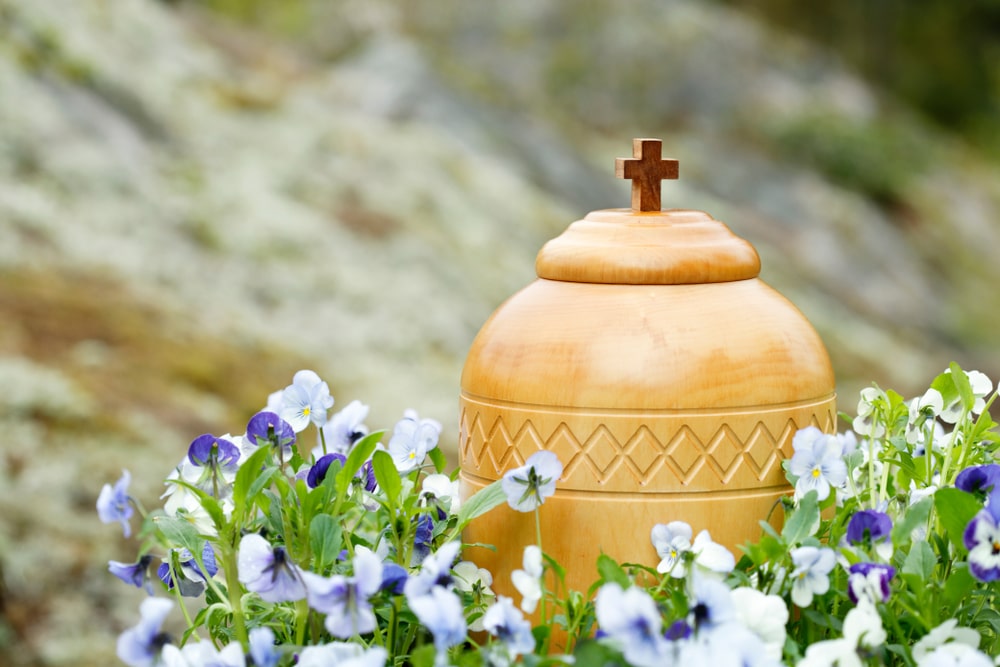When you choose cremation, there are more questions to answer than you might think. A key question is, “What should happen to the ashes after cremation is complete?” There are so many options to choose from. They range from urn burial, placement in a columbarium, keeping at home, scattering, and other more unusual choices, like launching into space. But for today, let’s discuss scattering and several frequently asked questions about the practice.
Is scattering ashes legal?
The short answer is yes, scattering ashes is legal. However, you’ll want to pay attention to where you are scattering. Scattering in certain locations (like private property) may result in fines or minor criminal charges. There are no federal laws relating to scattering ashes on land, but some states do have specific guidelines. If you are interested in scattering, talk it over with a trusted funeral director. They can give you guidance on your state’s specific laws (if any) about the practice.
Is scattering ashes safe for the environment?
It all depends on where and how you choose to scatter. Scattering at sea, launching into space, or placement in a columbarium are amongst the least environmentally impactful options for cremated remains. However, if you choose to scatter on land, scatter the remains over a large distance and not all in one place. In their natural form, ashes may include chemicals and pollutants that could affect soil composition, impacting plant growth and the larger ecosystem. However, by scattering over a distance, you minimize this possibility.
Where can I scatter ashes?
Now that we know scattering is legal, let’s talk about where you can scatter a loved one’s ashes. The biggest no-no is scattering ashes on private land that does not belong to you. In other words, don’t trespass on private property just because you like the view. This applies to private land, but also to places like stadiums, amusement parks, and the like.
Generally speaking, the best practice is to select a location and then determine what the rules and regulations are for that place. A few examples:
- Ask permission from the land owner before scattering on private property
- Get a permit or check regulations before scattering at a U.S National Park
- Talk to the cemetery administrator before scattering in a cemetery or urn garden
- Contact the authority in charge of a beach before scattering there
Many locations are available to you, as long as you request permission and complete any necessary paperwork. For example, you could scatter at your loved one’s favorite golf course or from an airplane, but there will be a little extra effort to do so.
Can you scatter ashes at sea?
While the federal government does not have laws regarding scattering on land (that’s left up to the states), they do have laws regarding burial at sea. There are typically two ways you can scatter ashes at sea: through the U.S. Navy or through a civilian charter company (or cruise line). To learn more about the requirements for scattering at sea, go to What You Need to Know About Burial at Sea.
“How” do I scatter ashes?
Always be aware of the wind direction. You will want to disperse the ashes with the wind, not against the wind. This way, the breeze carries the ashes away from you, and they don’t blow back into your face.
You can either scatter the ashes by hand (bring something to clean your hands with), or more commonly, you can hold the ashes at waist height and scatter them by gently “tossing” them out of the urn. Alternatively, you can purchase a scattering tube, which makes it much easier to scatter the ashes.

How do the major religions feel about scattering ashes?
In the United States, the major religions are based in Christianity, according to Pew Research. For today’s purposes, we will look at the cremation viewpoints of Catholics, Protestants, and Mormons. Additionally, we will briefly touch on Jewish funeral customs around cremation.
- Catholic Church: Cremation is accepted by the Catholic Church, but scattering is not. The entire cremated body must be kept together and either buried or placed in a columbarium.
- Protestant Church: There are many denominations within the Protestant faith, but generally speaking, cremation and scattering the ashes are acceptable practices. Some denominations may place a stronger emphasis on burial.
- Latter Day Saints: Cremation is not prohibited, but full-body burial is strongly preferred and encouraged.
- Judaism: Reform Judaism allows cremation as long as the cremated remains are buried as one unit in an urn or burial container. Orthodox Judaism remains strongly opposed to cremation.
Can I have a ceremony when scattering ashes?
In most cases, yes, you can have some sort of ceremony to accompany the scattering. Again, it all depends on where you choose to scatter the ashes.
If you choose a scattering garden, work with the funeral home or cemetery to put together a program, like you would experience at a graveside ceremony. For scattering at a U.S. National Park, you can find a remote place to say a few words (though the gathering will likely be small and private).
Whether you choose to do something simple or more detailed, it’s important to express what’s on your heart and mind as you say that final goodbye.
What are some tips for planning a scattering ceremony?
- First, always take the weather into account. You may not want to plan the ceremony for cold or rainy days, so keep an eye on the forecast.
- Second, if you are transporting cremated remains, make sure that you have a sturdy container that opens and closes well and easily. You want to be able to release the ashes easily, but you don’t want the container to spill open during your travel time. If you need to fly with the ashes, check out What You Need to Know About Flying with Cremated Remains for more tips.
- Third, plan the ceremony ahead of time because you may need to coordinate details with your chosen location. Without preparation, a scattering ceremony could turn into a minor scuffle with the law. So, do a little legwork to ensure everything goes smoothly.
If you have additional questions about scattering ashes, the funeral home is an excellent resource. Give them a quick call to set up an informal chat to discuss your options for scattering ashes. They will help you iron out all the details so you can honor a loved one’s life in a meaningful and personalized way.








